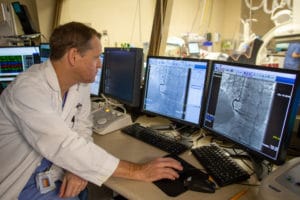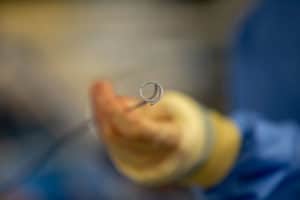What Is Interventional Cardiology

The field of cardiology is a wide-ranging and multi-faceted field. As with almost all medical fields, different areas of care and specialties help address different needs for patients. One of the subspecialties of cardiology we are proud to excel at here at South Denver Cardiology Associates is interventional cardiology. Today, we want to talk a little bit about interventional cardiology and why it’s such a critical field.
Understanding Interventional Cardiology
First things first, what is interventional cardiology? In its simplest definition, interventional cardiology is a subspecialty that deals specifically with catheter-based treatment of heart disease. Catheterization is a procedure that involves the insertion of a sheath into the groin or wrist artery and passing a catheter to the heart. The field includes diagnosing and treating things like coronary artery disease, vascular disease, and acquired structural heart disease.
Becoming an interventional cardiologist requires additional education and training to specialize in and more deeply understand cardiovascular disease and how to treat it as well as congenital and structural heart conditions through catheter-based procedures.
Types of Interventional Cardiology

Why It Matters

Interventional cardiology is a field that aims to help people with cardiac disease live better and longer lives through the management of the disease and its associated symptoms without requiring extensive surgeries. Often, interventional cardiology is used in conjunction with medications to help individuals with heart disease successfully manage their symptoms in the long term. If you think interventional cardiology may be an option for you, we encourage you to speak with your primary care provider. Or, if you already see a cardiologist, consult with them to determine what the best next steps may be for your health.
- 9 Tips to Reduce Holiday Stress - December 11, 2025
- 6 Tips for Exercising Outdoors with a Heart Condition - May 19, 2025
- Lifestyle Changes That Can Help Manage Arrhythmia - April 30, 2025
Sign Up
As with any health concerns, your specific treatment program should be discussed thoroughly with your primary care physician as well as any specialists who may need to be consulted – like a cardiologist.
Sign Up

